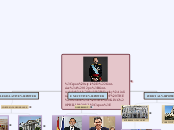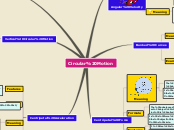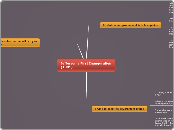PROVINCIAL MUNICIPAL LEVEL
REGIONAL AUTONOMIC LEVEL
NATIONAL LEVEL
AUDIENCIA PROVINCIAL ZAMORA
JUZGADOS
CITY COUNCIL OF ZAMORA
Councils of Zamora
The 10 councils that make up the municipal administration are: Social Welfare and Public Health; Commerce; Sports; Works and Heritage; Economy, Finance and Employment; Equality, Human Resources, Citizen Services and Consumption; Youth, Education, Culture and Districts; Environment and Urbanism; Innovation, Development and Citizen Protection; and Tourism and Promotion of the City.
MAYOR FRANCISCO GUARIDO VIÑUELA
PROVINCIAL DIPUTATIONS OF ZAMORA
Article 47
The province.
1. The province, as a local entity, has its own legal personality and full capacity to manage its interests. Its government and administration are entrusted to the respective Provincial Diputation. It also constitutes a territorial division for the fulfillment of the purposes of the Autonomous Community.
2. The powers of the Provincial Diputations will be established by the basic legislation of the State and that of the Autonomous Community. In any case, the Provincial Diputations will exercise competences in the field of cooperation, advice and assistance to municipalities and other local entities. They will also provide supramunicipal services of a provincial nature, within the scope of local competences, without prejudice to those delegated or entrusted to them by local entities of their territorial scope or the Autonomous Community.
PRESIDENT MARÍA TERESA MARTÍN POZO
SUPERIOR COURT OF JUSTICE CASTILLA Y LEÓN
Article 40
1. The Superior Court of Justice of Castilla y León is the highest jurisdictional body of the Administration of Justice within the Community in all orders, with the exception of military jurisdiction, and covers all its territorial scope. Its organization, competencies and functioning will be adjusted to whatever state legislation provides.
2. The powers of the Superior Court of Justice of Castilla y León shall be exercised without prejudice to those that correspond to the Supreme Court as the highest jurisdictional body in all orders within the Spanish Justice Administration or, where applicable, those recognized by the Courts International, in accordance with the provisions of the Constitution, the State legislation and the Treaties signed by Spain.
Article 41
1. The President of the Superior Court of Justice of Castilla y León shall be appointed by the King, at the proposal of the General Council of the Judicial Power. The President of the Junta de Castilla y León will order the publication of said appointment in the "Boletín Oficial of Castilla y León".
2. The appointment of the Magistrates, Judges, Secretaries and other personnel of the Superior Court and of the other organs of the Administration of Justice in the Community shall be carried out according to the form provided for in the legislation of the State.
JOSE LUIS CONCEPCIÓN
JUNTA DE CASTILLA Y LEÓN
CHAPTER III
The Junta de Castilla y León
Article 28.
1. The Junta de Castilla y León is the government and administration institution of the Community of Castilla y León and exercises the executive function and regulatory authority in accordance with this Statute and the rest of the legal system.
2. The Junta de Castilla y León is composed of the President, the Vice Presidents, as the case may be, and the Counselors.
3. A law of Castilla y León shall regulate the organization and composition of the Junta, as well as the powers and personal statutes of its members.
4. The President of the Junta appoints and freely separates its members, communicating it subsequently to the Cortes of Castilla y León.
5. The President may delegate executive and representative functions to the Vice Presidents and other members of the Junta.
6. The Vice President or Vice Presidents shall assume the functions entrusted to them by the President of the Junta and shall supply him, in his order, in the event of vacancy, absence or illness.
Article 30
Corresponds to the Junta de Castilla y León:
1. To exercise the government and administration of the Community within the scope of the powers attributed to it.
2. To file unconstitutionality appeals in the terms established in article 162.1. a) of the Constitution and to provoke, as the case may be, conflicts of competence with the State or another Autonomous Community, as provided for in the Organic Law of the Constitutional Court, stating in the latter by agreement of the Cortes of Castilla y León or on its own initiative.
3. Exercise as many other powers or powers as assigned by this Statute and the laws.
PRESIDENT JUAN VICENTE HERRERA
CORTES DE CASTILLA Y LEÓN
CHAPTER I
The Cortes of Castilla y León
Article 20
1. The Courts of Castilla y León represent the people of Castilla y León and exercise in their name, in accordance with the Constitution and the present Statute, the powers and attributions that correspond to them.
2. The Cortes of Castilla y León are inviolable.
Article 21
1. The members of the Cortes de Castilla y León receive the traditional denomination of Procurators and shall be elected by universal, free, equal, direct and secret suffrage, through a system of proportional representation that also ensures the representation of the different areas of the territory.
2. The electoral circumscription is the province, assigning to each one a minimum number of three Proctors and one more for each 45,000 inhabitants or fraction higher than 22,500.
3. The call for elections shall be made by the President of the Junta de Castilla y León.
4. The electoral legislation will determine the causes of ineligibility and incompatibility of the Procurators, in accordance with the provisions of Article 67, paragraph 1, of the Constitution.
5. The Cortes of Castilla y León are elected for four years. The mandate of the Procurators ends four years after their election or the day of the dissolution of the Chamber.
Article 24
Attributions. Corresponds to the Cortes of Castile and Leon:
1. Exercise the legislative power of the Community in the terms established by the Constitution, by this Statute and by the laws of the State that give them such power.
2. Control and promote the political and governmental action of the Junta and its President.
3. Approve the Budgets of the Community and those of the Courts themselves, as well as the annual accountability of both.
4. Choose from among its members the President of the Junta de Castilla y León.
5. Appoint the Senators who are to represent the Community, as provided in article 69.5 of the Constitution. The Senators will be appointed in proportion to the number of members of the political groups represented in the Cortes of Castilla y León.
6. Request from the Government the adoption of a bill, or refer to the Bureau of the Congress of Deputies a bill in the terms established in Article 87, paragraph 2, of the Constitution.
7. File unconstitutionality appeals, in accordance with what is established in article 162, section 1.a), of the Constitution, and the Organic Law of the Constitutional Court.
8. Exercise the initiative to reform the Constitution, in the terms set forth in it.
9. Provide the Government with the political, social and economic forecasts referred to in article 131, paragraph 2, of the Constitution.
10. Establish and demand taxes in accordance with the Constitution, this Statute and the corresponding laws of the State.
11. To approve transfers of competences of the Community to the municipalities, provinces and other local entities of the same, except for what is determined by the present Statute or establish a previous law of the own Community.
12. Ratify the agreements that the Junta concludes with other Autonomous Communities for the management and provision of their own services. Said agreements will be communicated immediately to the Cortes Generales.
13. To ratify the cooperation agreements that on matters other than those mentioned in the previous number concludes the Meeting with other Autonomous Communities with the authorization of the Cortes Generales.
14. Validate the Decrees Laws approved by the Junta, in accordance with the provisions of article 25.4 of this Statute.
15. Exercise all other powers, powers and powers assigned to them by the Constitution, this Statute and the laws.
PRESIDENT SILVIA CLEMENTE
MOTION OF CENSURE
Section 113
1. The Congress may require political responsibility from the Government by adopting a motion of censure by overall majority of its Members.
2. The motion of censure must be proposed by at least one tenth of the Members of Congress and shall include a candidate for the office of the Presidency of the Government.
3. The motion of censure may not be voted until five days after it has been submitted. During the first two days of this period, alternative motions may be submitted.
4. If the motion of censure is not adopted by the Congress, its signatories may not submit another during the same period of sessions.
Section 114
1. If the Congress withholds its confidence from the Government, the latter shall submit its resignation to the King, whereafter the President of the Government shall be nominated in accordance with the provisions of section 99.
2. If the Congress adopts a motion of censure, the Government shall submit its resignation to the King, and the candidate proposed in the motion of censure shall be deemed to have the confidence of the House for the purposes provided in section 99. The King shall appoint him or her President of the Government.
HEAD OF THE STATE: THE KING PHILIP VI
PART II
The Crown
Section 56
1. The King is the Head of State, the symbol of its unity and permanence. He arbitrates and moderates the regular functioning of the institutions, assumes the highest representation of the Spanish State in international relations, especially with the nations of its historical community, and exercises the functions expressly conferred on him by the Constitution and the laws.
2. His title is that of King of Spain, and he may use the other titles appertaining to the Crown.
3. The person of the King is inviolable and shall not be held accountable. His acts shall always be countersigned in the manner established in section 64. Without such countersignature they shall not be valid, except as provided under section 65(2).
JUDICIAL POWER
CONSTITUTIONAL COURT
PART IX
The Constitutional Court
Section 159
1. The Constitutional Court shall consist of twelve members appointed by the King. Of these, four shall be nominated by the Congress by a majority of three-fifths of its members, four shall be nominated by the Senate with the same majority, two shall be nominated by the Government, and two by the General Council of the Judicial Power.
2. Members of the Constitutional Court shall be appointed among magistrates and prosecutors, university professors, public officials and lawyers, all of whom must have a recognised standing with at least fifteen years’ practice in their profession.
3. Members of the Constitutional Court shall be appointed for a period of nine years and shall be renewed by thirds every three years.
4. Membership of the Constitutional Court is incompatible with any position of a representative nature, any political or administrative office, a management position in a political party or a trade union as well as any employment in their service, active service as a judge or prosecutor and any professional or business activity whatsoever. Incompatibilities for members of the Judicial Power shall also apply to members of the Constitutional Court.
5. Members of the Constitutional Court shall be independent and enjoy fixity of tenure during their term of office. Section 160 The President of the Constitutional Court shall be appointed by the King among its members, on the proposal of the full Court itself, for a term of three years.
Section 161
1. The Constitutional Court has jurisdiction over the whole Spanish territory and is entitled to hear:
a) against the alleged unconstitutionality of acts and statutes having the force of an act. A declaration of unconstitutionality of a legal provision having the force of an act and that has already been applied by the Courts, shall also affect the case-law doctrine built up by the latter, but the decisions handed down shall not lose their status of res judicata.
b) Individual appeals for protection (recursos de amparo) against violation of the rights and freedoms contained in section 53(2) of the Constitution, in the circumstances and manner to be laid down by law.
c) Conflicts of jurisdiction between the State and the Self-governing Communities or between the Self-governing Communities themselves.
d) Other matters assigned to it by the Constitution or by organic acts.
2. The Government may appeal to the Constitutional Court against provisions and resolutions adopted by the bodies of the Self-governing Communities, which shall bring about the suspension of the contested provisions or resolutions, but the Court must either ratify or lift the suspension, as the case may be, within a period of not more than five months.
PRESIDENT JUAN JOSÉ GONZÁLEZ RIVAS
SUPREME COURT
Section 123
1. The Supreme Court, with jurisdiction over the whole of Spain, is the highest judicial body in all branches of justice, except with regard to provisions concerning constitutional guarantees.
2. The President of the Supreme Court shall be appointed by the King, on the General Council of the Judicial Powers’ proposal in the manner to be laid down by the law.
PRESIDENT CARLOS LESMES
EXECUTIVE POWER
GOVERMENT
PART IV
Government and Administration
Section 97
The Government shall conduct domestic and foreign policy, civil and military administration and the defence of the State. It exercises executive authority and the power of statutory regulations in accordance with the Constitution and the laws.
Section 98
1. The Government shall consist of the President, Vice-Presidents, when appropiate, Ministers and other members as may be created by law.
2. The President shall direct the Governments’ action and coordinate the functions of the other members thereof, without prejudice to the competence and direct responsability of the latter in the discharge of their duties.
3. Members of the Government may not perform representative functions other than those derived from their parliamentary mandate, nor any other public function not deriving from their office, nor engage in any professional or commercial activity whatsoever.
4. The status and incompatibilities of members of the Government shall be laid down by law.
Section 101
1. The Government shall resign after the holding of general elections, in the event of loss of parliamentary confidence as provided in the Constitution, or on the resignation or death of the President.
2. The outgoing Government shall continue as acting body until the new Government takes office.
PRESIDENT P. SÁNCHEZ
MINISTERS
EXPRESIDENT M. RAJOY
EXMINISTERS
LEGISLATIVE POWER
CORTES GENERALES
PART III
The Cortes Generales (Parliament)
Section 66
1. The Cortes Generales represent the Spanish people and shall consist of the Congress and the Senate.
2. The Cortes Generales exercise the legislative power of the State and adopt its Budget, control the action of the Government and have the other competences assigned by the Constitution.
3. The Cortes Generales are inviolable.
CONGRESS
SECTION 69
1. The Senate is the House of territorial representation.
2. In each province, four Senators shall be elected by the voters thereof by universal, free, equal, direct and secret suffrage, under the terms to be laid down by an organic act.
3. In the insular provinces, each island or group of islands with a Cabildo or insular Council shall be a constituency for the purpose of electing Senators; there shall be three Senators for each of the major islands —Gran Canaria, Mallorca and Tenerife— and one for each of the following islands or groups of islands: Ibiza-Formentera, Menorca, Fuerteventura, Gomera, Hierro, Lanzarote and La Palma.
4. The cities of Ceuta and Melilla shall elect two Senators each.
5. The Self-governing Communities shall, in addition, appoint one Senator and a further Senator for every million inhabitants in their respective territories. The appointment shall be incumbent upon the Legislative Assembly or, in default thereof, upon the Self-governing Community’s highest corporate body as provided for by its Statute which shall, in any case, guarantee adequate proportional representation.
6. The Senate is elected for four years. The Senators’ term of office shall end four years after their election or on the day on which the House is dissolved.
PRESIDENT PIO GARCÍA
SENATE
Section 68
1. The Congress shall consist of a minimum of three hundred and a maximum of four hundred Members, elected by universal, free, equal, direct and secret suffrage, under the terms to be laid down by the law.
2. The electoral constituency is the province. The cities of Ceuta and Melilla shall be represented by one Member each. The total number of Members shall be distributed in accordance with the law, each constituency being allotted a minimum initial representation and the remainder being distributed in proportion to the population.
3. The election in each constituency shall be conducted on the basis of proportional representation.
4. The Congress is elected for four years. The term of office of Members thereof ends four years after their election or on the day on which the Congress is dissolved.
5. All Spaniards entitled to the full exercise of their political rights shall be electors and may be elected. The law shall recognise and the State shall facilitate the exercise of the right of vote by Spaniards who are outside Spanish territory.
6. Elections shall take place between thirty and sixty days after the end of the previous term of office. The Congress so elected must be convened within twenty-five days following the holding of elections.
PRESIDENT ANA PASTOR









